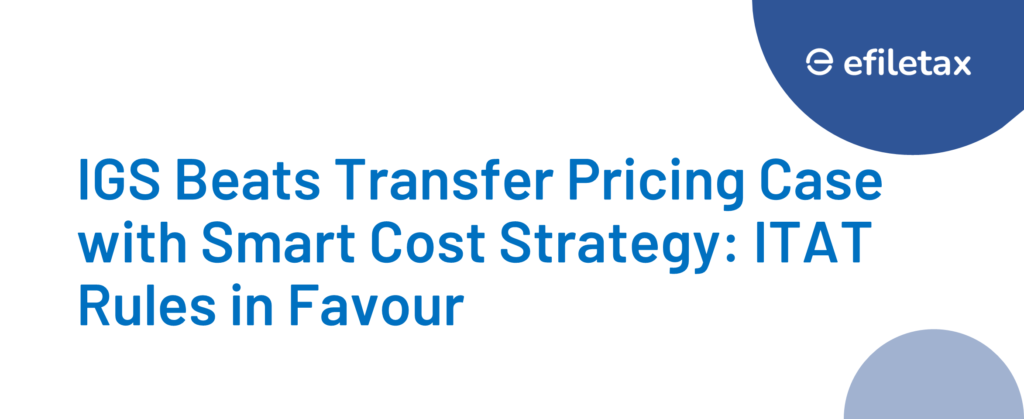
Transfer Pricing Disputes: Why Accurate Cost Allocation Matters
In a significant win for multinational companies operating in India, Integrated Global Services (IGS) successfully defended its inter-company service pricing before the Income Tax Appellate Tribunal (ITAT).
The case revolved around transfer pricing—a method used by MNCs to price services, goods, or IPs exchanged between group entities across borders. The focus keyphrase transfer pricing case win highlights the importance of accurate cost justification in cross-border tax compliance.
Let’s break down the judgment and its wider implications.
What Was the Dispute About?
- Entity Involved: Integrated Global Services India Pvt. Ltd.
- Assessment Year: 2016–17
- Issue Raised: Transfer Pricing Officer (TPO) rejected IGS’s cost allocation method
- TPO’s Argument: Allocated costs lacked documentation; rejected profit level indicators (PLIs)
- IGS’s Defence: Used Actual Cost Allocation (ACA) and justified with proper segmental data
Key Legal Points Considered
| Legal Provision | Relevance in Case |
|---|---|
| Sec 92C of Income-tax Act, 1961 | Governs arm’s length pricing of international transactions |
| Rule 10B(1)(e) | Details Transactional Net Margin Method (TNMM) used by IGS |
| OECD Guidelines | Supported ACA & segment-wise justification |
| ITAT Verdict | Favoured taxpayer’s documented methodology |
ITAT’s Ruling: Why IGS Won
- Accepted ACA Method: Tribunal noted that IGS submitted audited segmental accounts for cost-sharing
- Rejected TPO’s Adjustments: Held that TPO’s rejection was “ad-hoc and unsustainable”
- Supported Practical Pricing: Emphasised business realities over theoretical benchmarking
- Highlighted Functional Analysis: Demonstrated how services were actually rendered and priced
Expert View:
“This transfer pricing case win reinforces the need for practical, documentation-backed cost models. Indian subsidiaries of MNCs should maintain clear, audited segmental accounts to defend inter-company pricing.”
Lessons for Indian Subsidiaries of MNCs
- Maintain contemporaneous documentation of all shared services
- Use segmental audited data for internal cost sharing
- Choose the most appropriate method (MAM)—preferably TNMM with sound PLIs
- Align with OECD transfer pricing principles
- Be prepared to counter arbitrary TPO assumptions
FAQ: Transfer Pricing Case Win
Q1. What helped IGS win this case?
Clear cost documentation and segmental audits aligned with TNMM principles.
Q2. Can Indian subsidiaries use ACA models?
Yes, if segment-wise cost allocations are verifiable and justified.
Q3. What are common TPO red flags?
Lack of documentation, unjustified PLIs, and inconsistent cost allocation methods.
Final Takeaway:
This transfer pricing case win is a reminder for MNCs in India to be legally and financially meticulous in cross-border pricing. With growing scrutiny, internal pricing must reflect both economic substance and documentary evidence.
Integrated Global Services secured a transfer pricing case win before ITAT by justifying its service pricing using audited segmental data and Actual Cost Allocation. The ruling favours practical business methods over arbitrary tax officer assumptions, offering critical lessons for MNCs operating in India.